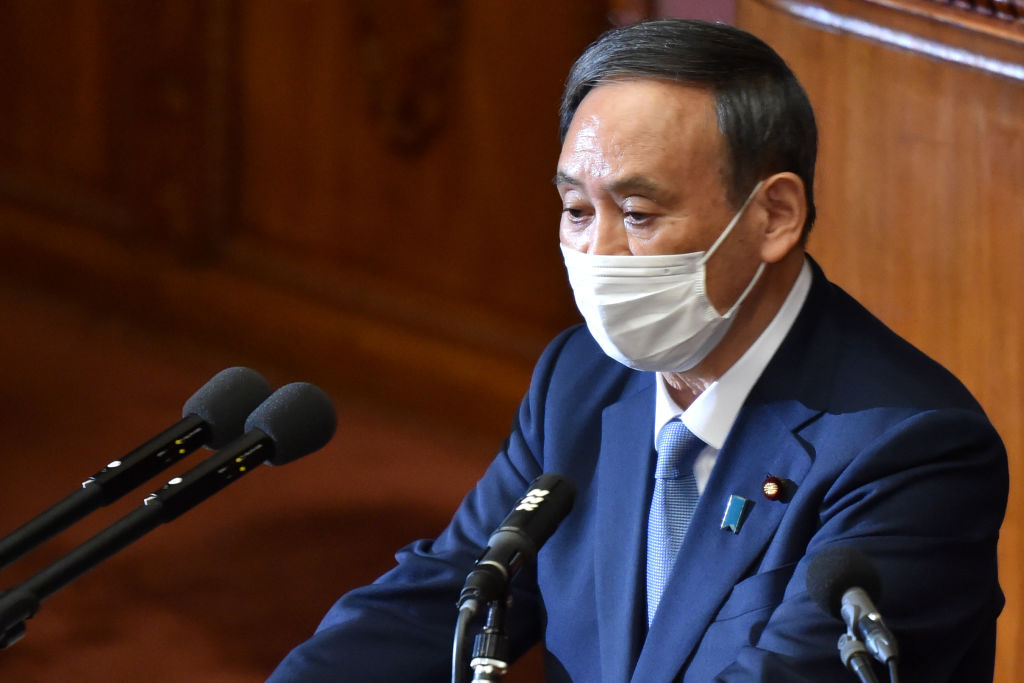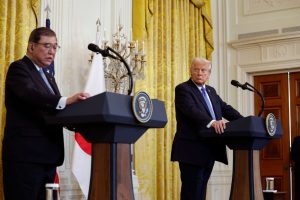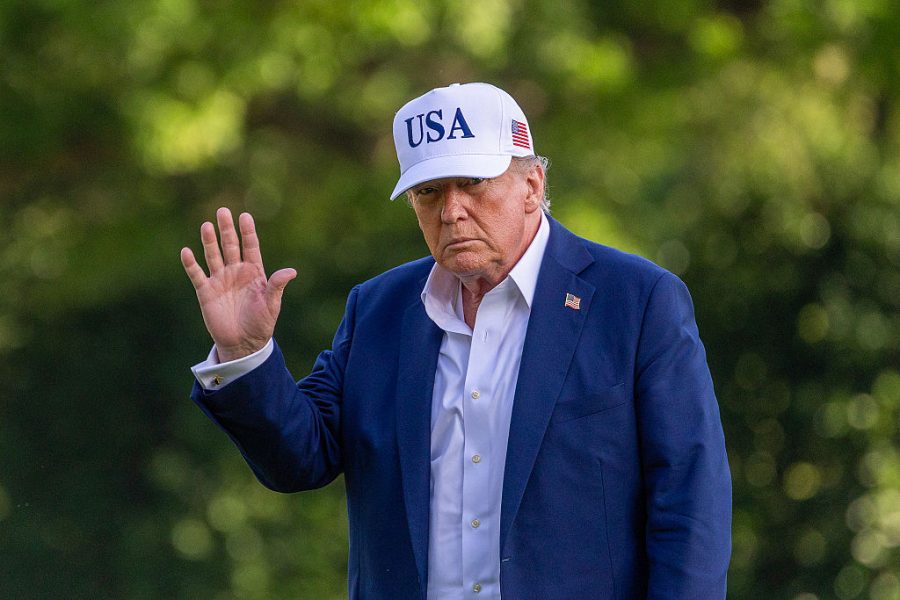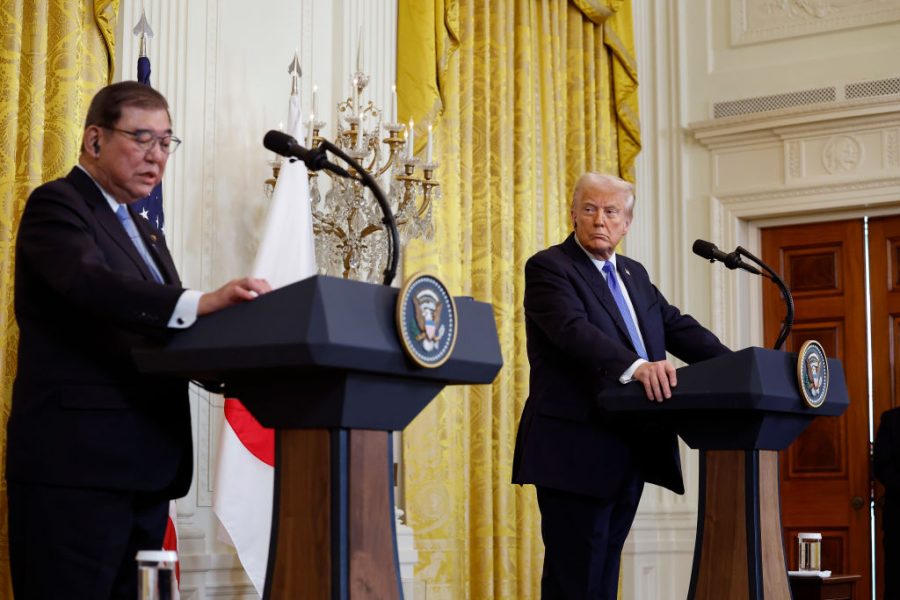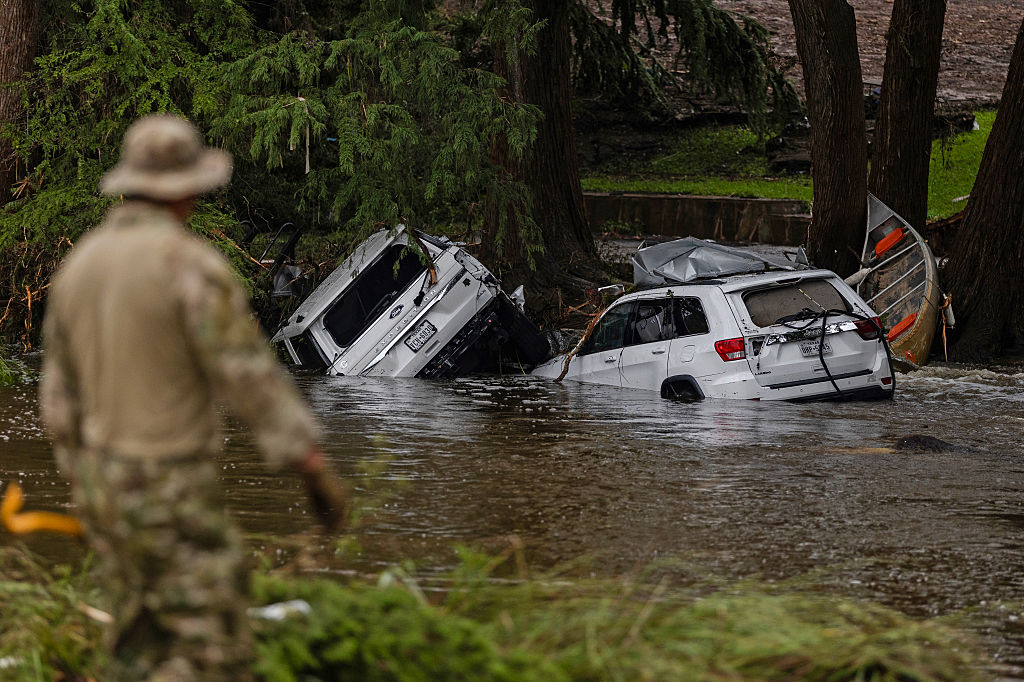Japan’s new prime minister Yoshihide Suga is talking tough on climate change. Suga has promised that Japan will become carbon neutral by 2050, a step up from the previous commitment of an 80 percent cut in emissions. But is this all a load of bluster?
While a certain opacity is expected in formal Japanese (a famous anecdote has a journalist having his copy returned with the instruction ‘Could you make it a little more vague?’) Suga was exceptionally unspecific in his so-called climate commitment. He made little reference to how the target would be achieved, or how progress would be monitored. Nor did he mention the Paris Climate Agreement, which mandates a 45 percent reduction in emissions by 2030.
What he did say was that his government would undertake ‘the utmost efforts to create a green society’, which could mean just about anything. And given that Suga, at 71, and the rest of Japan’s reigning gerontocracy will be likely dead or in very old-age retirement long before the apparent promise is due, the whole thing is being taken with a pinch of wasabi.
What detail there is from Suga’s administration consists of optimistic, some would say fanciful, talk of carbon recycling (an as yet effectively non-existent technology) and of securing ‘energy forests’ for the exclusive purpose of growing sources of biomass power. The latter is curiously reminiscent of Japanese attempts at the end of World War Two to extract oil from pine roots, for which thousands of children were dispatched into the countryside for hours of backbreaking and largely pointless toil. It didn’t end well.
It would be wrong, of course, to say that there has been no substantial shift in thinking in the world’s fifth largest emitter of carbon dioxide. But you do have to look at the fine print to get to the truth. On July 3, under Shinzō Abe’s administration, industry minister Hiroshi Kajiyama announced that 100 low efficiency coal fired plants would be shut down by 2030. What he didn’t mention was that 22 new coal plants are planned to help make up the difference.
To be fair, Suga may have opted for airy rhetoric as he has limited options, partly due to the legacy of the 2011 Fukushima nuclear disaster that followed the Great Tohoku earthquake and tsunami. This prompted the shuttering of most of the country’s nuclear power plants, the emergence of an influential anti-nuclear movement and an upsurge in environmental awareness. Despite the National Diet commission concluding that the accident had been foreseeable, and more to do with lax oversight, poor design, and a culture of complacency than inherent problems with nuclear energy itself, the public remain wary of a major renewed investment.
The UN has welcomed Suga’s pledge though. Secretary-General António Guterres says he is ‘encouraged’ by the move and glad that Japan had decided to join the Climate Ambition Alliance, a group of countries, cities and organizations committed to the carbon neutral goal. Suga informed Guterres of his aspirations in a 10-minute telephone call, which can’t have left much time for specifics, adding to the suspicion that the pledge is more a token gesture than a substantive policy commitment.
Cynics have suggested that Suga’s declaration is in effect an ‘anything you can do I can do better’ response to President Xi of China’s September pledge to make China carbon neutral by 2060. It may also be a signal that the Suga administration anticipates a Joe Biden victory in next week’s US presidential election, and wishes to prepare the groundwork for a good working relationship with the newly-green White House.
***
Get a digital subscription to The Spectator.
Try a month free, then just $3.99 a month
***
Reaction among ordinary Japanese has been muted. With COVID concerns, real or exaggerated, still occupying minds, and with some restrictions still in place (‘we’ll be wearing masks until we die’ a young colleague told me recently) and with the economy in a parlous state, there is a feeling even among those broadly supportive of a de-carbonization strategy that the new administration should be focusing on more immediate domestic concerns, rather than grandstanding on eco dreams.
As for anthropogenic climate change skeptics such as myself, the pledge is at once strangely reassuring, and vaguely depressing. Reassuring in that it is so caveated and vague that it is unlikely to be followed up with dangerous economy wrecking policies in pursuit of its utopian goal. It’s depressing in that the faint hope that Suga, with his humble background and reputation for being in touch with the concerns of ordinary people, would offer an alternative to the grand headline-making but ultimately inconsequential policy pronouncements of his aristocratic predecessor, seems on this evidence unlikely to be borne out.
Suga’s first blast has the familiar feel of hot rather than fresh air.
This article was originally published on The Spectator’s UK website.



